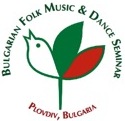Teachers
* THE BULGARIAN FOLK MUSIC & DANCE SEMINAR WILL TAKE PLACE AGAIN IN 2026. We will be updating the website in the next couple of months – however, we are leaving the 2025 information in place to provide an idea of our program and teaching staff. Please do not try to register yet! This red note will disappear when we’re ready to go. Thank you, and hope to see you in 2026! (Posted November 11, 2025.)
Instrumental and Vocal Teaching Staff
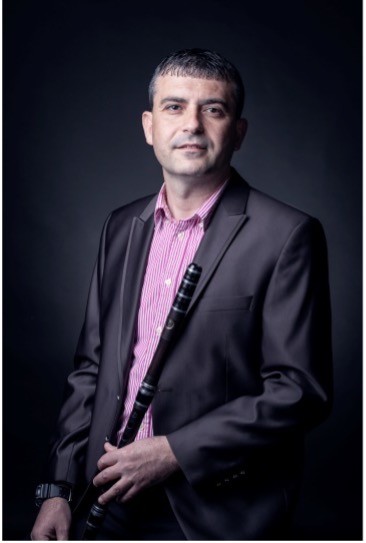
Vasil Vasilev graduated from the Folk Music High School in Shiroka Luka in 1998 with a major in kaval. In 2002, Vasil began working as a soloist with the folk orchestra at the Academy of Music, Dance and Fine Arts “Prof. Asen Diamandiev” in Plovdiv. In 2005, he received a master’s degree in kaval from the Music Academy. In 2015, he received his PhD from the Academy with a dissertation entitled “Characteristic features of contemporary kaval performance art.” In 2017, he was appointed chief assistant for kaval and chamber instrumental groups in the Musical Folklore Department. In addition to his teaching work at the Music Academy, he also teaches kaval at “Lyuben Karavelov” High School in Plovdiv. In 2021, he published the monograph, “The kaval in Bulgarian musical practice,” and in 2022 he became Associate Professor of kaval and chamber instrumental ensembles at the Music Academy.
Vasil has performed in many concerts in Bulgaria and abroad as a soloist with the Music Academy’s folk ensemble, as well as with the vocal ensemble, Mystery of the Bulgarian Voices. He has recorded for Bulgarian National Radio and Television together with the orchestra for folk music at Bulgarian National Radio. He has also performed as a soloist in the instrumental jazz groups Lamiko Band and Ethno Folk Jazz. He has won many prizes at competitions, the most prestigious of which are the Grand Prize at the international youth competition, “Folklore without Borders” at Albena/Dobrich, and 1st prize at the “New Bulgarian Folk Music” competition at Chepelare. In November 2024, he presented a workshop and solo concert in Seoul, South Korea at the KOUS Korea Cultural House that was organized by the East-West Music Society and Sofia Music Weeks.
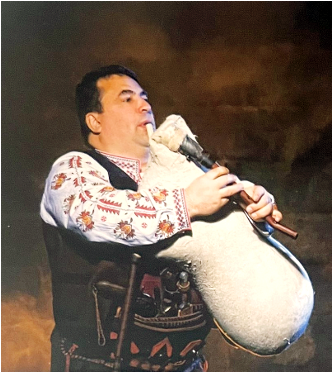
Stefan Yanev was born in Smolyan in 1971. His brother, Petur Yanev, is a gaida player with the State Folk Ensemble “Rhodopa” in Smolyan; he is a soloist player, who accompanies world-famous singer Valya Balkanska, whose song “Izlel e Delyo Haidutin” now circles outer space.
“My family unceasingly welcomed all sorts of guests, which meant that as a small child I ‘met folk music.’ Mama had a gorgeous, rich and strong Rhodopi voice. She sang like an angel! Very likely that was connected with the fact that my grandmother was first cousins with the last Bulgarian Exarch Stefan, and I proudly bear his name. It was even in my first school that I enrolled in a gaida group. After a short period of study, I was accepted into the basic group of the childrens’ and youth folk ensemble in Smolyan under the direction of the great musician, Dinyo Lyolev. There I had the chance to listen to and learn from ‘the great gaidari’ such as Atanas Karaivanov (Bai Taso), Stefan Zahmanov, Lazar Kanevski, Dafo Trendafilov, and so on. After a few years, in spite of my young age, I was fortunate to be invited by Bai Taso, who led the “100 Kaba Gaidi,” to become a member of the so-called ‘startsi’ (the old ones) – the best Rhodopi gaidari in Bulgaria. Playing concerts with them I was able to tour all over Bulgaria and Europe. I listened and drank in whatever the old master gaidari were able to do! Those years had a huge influence on my development as a Rhodopi gaidar. After that I did my army service, more concerts, festivals, weddings, village and religious holidays, and so on. In 2000, I was invited by Stoicho Karanlukov, the artistic director of Ensemble ‘Nadezhda Hvoineva’ in Asenovgrad, to be a gaidar and soloist. There I became acquainted with the young Rhodopi singer, Lyubomir Petov. With him the work took off – we established an authentic Rhodopi duet: singer and gaidar. By now I have three CDs with Lubo, which Rhodopi people really like and gladly listen to. Over the years we have worked with other famous, beloved singers from the Rhodopes, such as Valya Balkanska, Mladen Kojnarov, Zlatina Uzunova, Nikolai Slaveev, Shinka Tusuzova and others, and we continue to be invited to perform at concerts and celebrations in Bulgaria and abroad. What else can I say? – song knows no borders and gaida music is eternal!
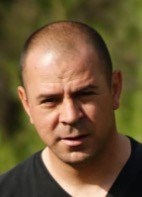
Ivan Stoyanov Chardakov was born in Plovdiv in 1982. In 2001, he graduated from the “Filip Kutev” Music High School in Kotel with a major as an instrumental artist and gaida teacher. In 2006, he earned a bachelor’s degree with a major in Music Pedagogy, and in 2007, he received a master’s degree with specialization in Media Music Editing at the Academy of Music, Dance and Fine Arts “Prof. Asen Diamandiev” in Plovdiv. Ivan taught music at the “Kiril and Metodii” High School in Plovdiv (2004-2005), and at the “Georgi Bregov” High School in Pazardzhik (2008-2019). In 2012, he was a part-time teacher at “Paicii Hilendarski” University in Plovdiv.
Ivan has worked with different music and dance ensembles in Bulgaria and performed with them in many concerts at home and abroad. Since 2008, he has been working as a musician in the Ensemble for Folk Songs and Dances in Pazardzhik.
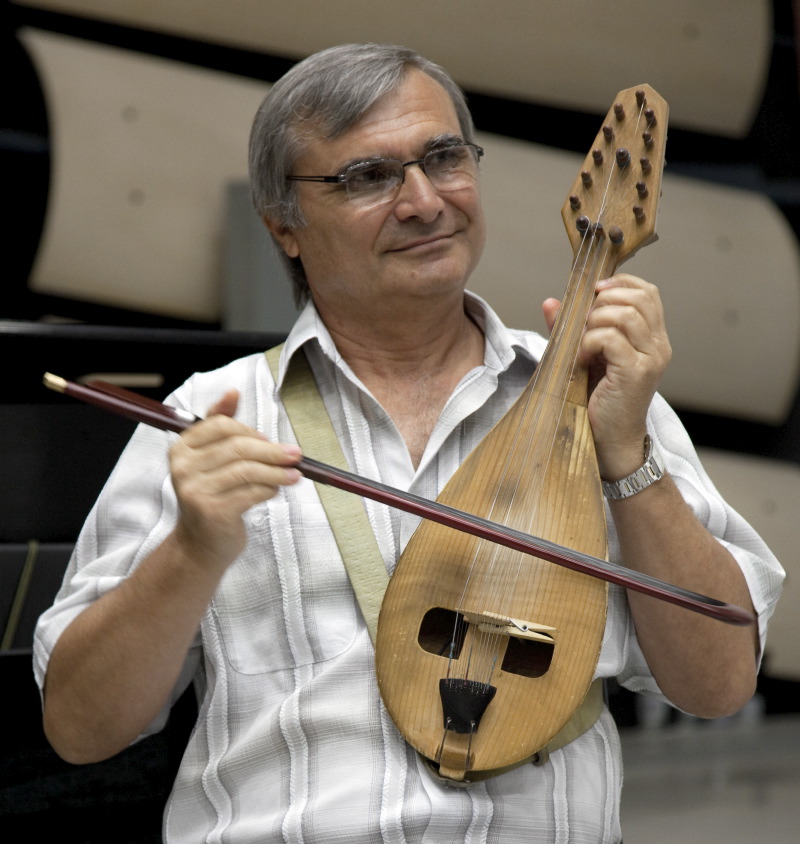
Prof. Dr. Todor Kirov is a well-known figure in the field of gûdulka performance and pedagogy. He was born in the village of Obedinenie, Veliko Turnovo region in North Central Bulgaria and has been playing gûdulka since 1964. Dr. Kirov has performed with various musical groups and prestigious ensembles, and has recorded for Bulgarian National Radio and Bulgarian National Television. He has given concerts and led seminars in Bulgaria, Europe and the USA. He has also worked as an artistic director of folk ensembles, and created musical arrangements for folk orchestras and chamber folk-instrumental ensembles. Prof. Dr. Todor Kirov is the first professional gûdulka teacher in Bulgaria to receive the prestigious title “Professor Doctor.”
Dr. Kirov began his teaching career in children’s music schools and secondary music schools in 1972. In 1976, he became a teacher at VMPI (now the Academy of Music, Dance and Fine Arts “Prof. Asen Diamandiev”) in Plovdiv. He has provided the foundation of professional training in gûdulka in Bulgaria. In his many years of teaching, he has trained over 800 young performers and teachers of gûdulka, many of whom are established names in folk music. His students have participated in nearly all folklore ensembles and art educational institutions in Bulgaria – as orchestra players, conductors, or gûdulka teachers.
Dr. Kirov is the author of more than 20 titles of scientific, instructional, artistic, sketch and technical literature on the gûdulka. These works are a significant contribution to Bulgarian folklore, representing an in-depth study of the history, evolution, method of learning and specific features of the gûdulka, as well as staging, sound extraction and performance technique, melodies, stylistic features and ornamentation. He leads a lecture course on “Methodology of teaching stringed folk instruments.”
Prof. Kirov participates in juries at national festivals and competitions for folk performers. He gives lectures on Bulgarian musical folklore in Bulgaria, Europe and the USA.
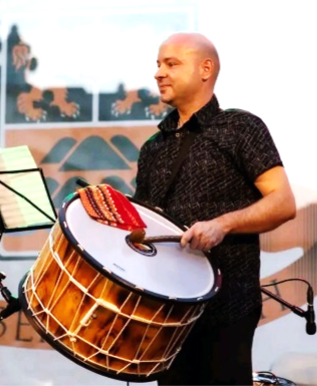
Kostadin Kostov was born in Haskovo in 1981. He is a performer on and teacher of drums, tûpan and percussion. He studied at the Children’s Music School in Haskovo and received a bachelor’s degree from the Academy for Music, Dance and Fine Arts “Prof. Asen Diamandiev” in Plovdiv with a major in percussion instruments.
At present, Kostadin is a tûpan player in the National Folk Orchestra at the Music Academy. For many years he has been the drummer of Orchestra “Orfei.“ He has taken part in numerous projects with groups like the “Bogdan Trio,” “Nazdravitsa“ and Orchestra “Orion“ in Haskovo, as well as orchestra “Panorama“ in Varna. In addition to folk music, Kostadin has played rock and pop music with the groups “Haos” (Chaos) and “DDS,“ and also jazz music in “Takov brass.” He has been the tûpan player in the ensemble “Kitna Trakia” in Haskovo, the ensemble at the ship-building factory in Varna, and “Elika“ in Plovdiv. He has performed with Petûr Ralchev, Ivan Milev, Ivo Papazov and many other well-known artists. Kostadin has taken part in many recordings of Bulgarian folk music in different studios over the past 20 years.
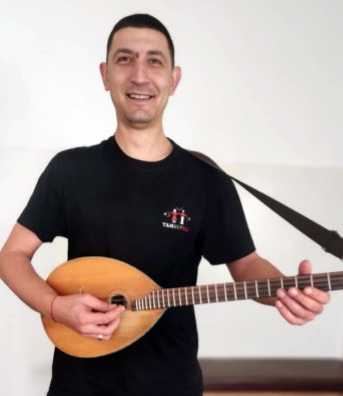
Dian Kolev was born in Varna in 1989. He grew up in Kazanlak, where he graduated from the “Ekzarh Antim I” High School with a major in tambura. He has taken part in many concerts and won prizes at competitions in Bulgaria and abroad. He received his bachelor’s and master’s degrees from the the Academy of Music, Dance and Fine Arts “Prof. Asen Diamandiev” in Plovdiv with a major in Performance Arts. He has been a soloist in the folk orchestra of Ensemble Trakia since 2010.
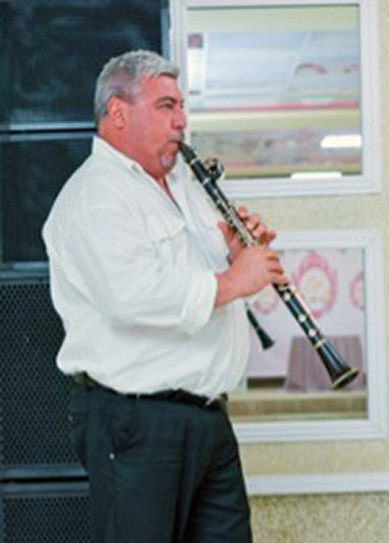
Bozhidar Strehin was born in 1970 in the town of Rakovski, near Plovdiv. His love for folk music was inherited through his maternal lineage; his grandfather, uncle and cousins are all musicians.
As a young child Bozhidar started playing accordion at the local cultural center, but the accordion was not his favorite instrument. After 2 years, at age 10, he started playing the clarinet with the Thracian clarinetist Nikola Iliev, who ran a music school in Parvomai. It was Nikola who revealed to Bozhidar the secrets of the clarinet.
From 1982 until 1987, Bozhidar participated in the dance group of the community center in Rakovski. He then played in the local orchestra “Zdravets,” and began to perform at weddings and other celebrations. During and after his regular military service, he continued his musical path and played on military holidays and in the Thracian Spring Orchestra. With this orchestra he made his first studio recording for Radio Plovdiv of “Elenino horo.”
In early 1993, Bozhidar began to lead The Young Thracians Orchestra, which quickly became popular in Plovdiv. Early soloists were Maria Pasheva and Kostadin Vassilev. Their first album, “For You, Mariike,” was released in 1994. The Young Thracians Orchestra released their second album, “Angry Love,” in 1996. In 2005, the orchestra’s third album, “A Breath from Thrace,” appeared.
In the spring of 2017, The Young Thracians Orchestra won the grand prize at the first Festival of Wedding Orchestras in Asenovgrad. In the autumn of 2017, they celebrated the group’s anniversary on the stage in Parvomai during the “Feast of Thracian Folk Music.” The kaval player Nedyalko Nedyalkov, saxophonist Minyo Georgiev, singers Dimitar Bogdanov, Tonka Koleva, Vanya Valkova and Ivelina Ivanova have worked with this group.
In addition to The Young Thracians orchestra, Bozhidar plays with former colleagues in the folklore ensemble “Slav Boykin” in his hometown. He was a long-time chairman of the local community center.
From 2011 to 2019, during his two terms as “deputy mayor for culture” of the municipality, Bozhidar Strehin was one of the initiators to make “sister cities” of the two municipalities, Chiprovtsi and Rakovski, and was involved with the unveiling of a monument to the famous kaval player, Nikola Ganchev in the village of Shishmantsi.
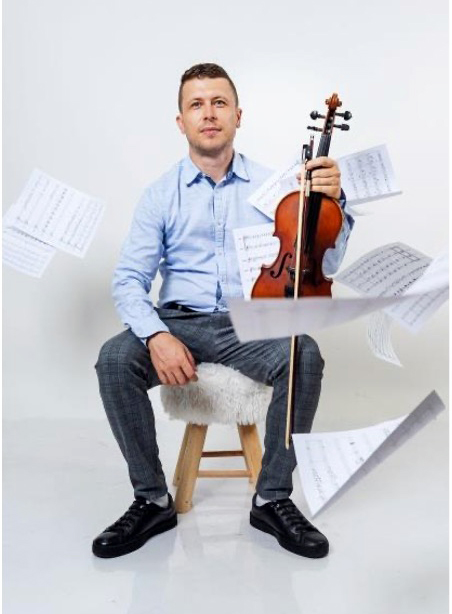
Hristo Georgiev was born in Plovdiv in 1983. His musical education began in 1992 when he was accepted to the music program at the SU “Lyuben Karavelov” high school in Plovdiv, with a major in gûdulka.
In 1996, Hristo continued his education at the Shiroka Lûka Music High School. In 2001, he continued his studies at the Academy of Music, Dance and Fine Arts “Prof. Asen Diamandiev” in Plovdiv. He received his bachelor’s degree in “Performance Studies” with a specialization in gûdulka from the Music Academy in 2005 and his master’s degree in playing gûdulka in 2010. As a student, Hristo played in the Music Academy’s folk orchestra under the direction of Prof. Milcho Vasilev.
Hristo has participated in many competitions, studio recordings and folk music programs on television. He has played with a variety of different orchestras, as well as many musical engagements such as town and village celebrations and religious holidays.
In March 2006, Hristo began working in the Ensemble for Folk Songs and Dances in Pazardzhik, and since October 2020, he has worked as concertmaster of the Music Academy’s folk orchestra in Plovdiv.

Veronika Diyanova Damyanova was born in 2001 in the city of Ruse. She graduated from the National Technical University “Prof. Veselin Stoyanov” in Ruse with a major in folk singing. She is currently in her fifth year of study at Academy of Music, Dance and Fine Arts “Prof. Asen Diamandiev” in Plovdiv, specializing in “Conducting folk ensembles.”
During her first 4 years at the Music Academy, Veronika also studied folk singing and is now qualified as a “Teacher of folk singing.” Also while at the Academy, she has had the opportunity to conduct the school’s folk choir and folk orchestra. Additionally, as a soloist in the Academic Folk Choir, she is actively involved in giving concerts, making recordings, participating in festivals in Bulgaria and abroad, and taking part in joint projects.
Veronika has been participating in the organization of the International Competition “Orfeevi talanti” in Plovdiv for 3 years. For 2 summers, she has taken part in the Summer Academy that is held annually in Malko Tarnovo municipality and the surrounding villages collecting, deciphering and analyzing musical folklore and getting to know the customs of the Strandzha folklore region. Her article, “A Maiden Fell Asleep” by Ivan Valev – Artistic Perspectives Contained in the Score, was published in the collection of the conference, “Spring Scientific Readings.” Veronika enjoys working with folk orchestras and is happy to be taking part in the Bulgarian Folk Music and Dance Seminar this year at the Music Academy.
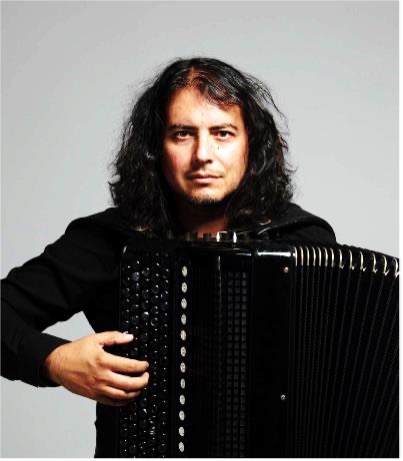
Angel Marinov was born in Asenovgrad in 1975. He graduated from the music high school in Plovdiv, and received a master’s degree from the Academy of Music, Dance and Fine Arts “Prof. Asen Diamandiev” in Plovdiv with a major in accordion, having studied with his father, Associate Prof. Petar Marinov. He graduated from the composition class at the Music Academy with Prof. Ivan Spasov and Bozhidar Abrashev. He specialized at Voronezh State Institute of Arts in Russia in 1991 under Prof. Alexander Afanasievich Timoshenko.
Angel Marinov is a laureate of the international competitions “Castelfidardo 97” and “Val Tidone” in Italy; he also won first prizes in national competitions at Chirpan in Bulgaria. As a composer he has published numerous works in Bulgaria and abroad, and his works are performed in Bulgaria as well as throughout Europe and Asia. In addition to composing for accordion, Angel writes music for films, musicals and theatrical productions. He has written numerous children’s songs and composed the tunes included in music textbooks issued by the “Izkustvo” publishing house, as well as many aids for kindergartens issued by the Prosveta and Bulvest publishing houses. In 2015, he created the “Petar Marinov National Accordion School” to popularize learning accordion in elementary and high schools in Bulgaria and around the world.
As a concert artist, Angel has performed since 1994 in the former USSR, the European Union, and the Balkan countries. Angel, his father Petar Marinov, Victor Melnik and Elena Melnik formed a quartet, “Consonance,” and produced a CD. Angel Marinov is the owner of a publishing house with many editions of musical literature and music theory textbooks; he also owns a show business impresario agency.
Angel’s students have won prizes at national and international accordion competitions. He is a delegate representing Bulgaria at the Confédération Mondiale de l’Accordéon, and on the jury for the Trophée Mondial, as well as for the world accordion organization, The Confederation Internationale des Accodeonistes (CIA), and the Cupe Mondial competition.
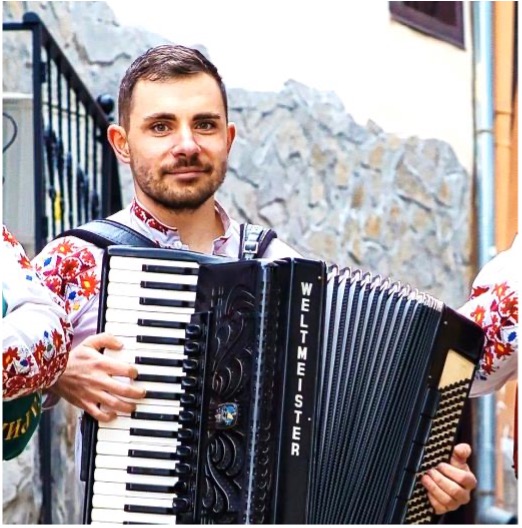
Alexander Marinov was born in Plovdiv in 1994. At the age of 7, he began to study accordion with Arsine Baltayan (wife of the famous violin teacher Garo Baltayan). In 2013, he graduated from the National School for Music and Dance Arts “Dobrin Petkov” in Plovdiv, and in 2017 he received his bachelor’s degree in performance art at the Academy of Music, Dance and Fine Arts “Prof. Asen Diamandiev” in Plovdiv. He received his master’s degree from the Academy in 2018.
From 2011 to 2017, Alexander worked as accompanist in the Mixed Folk Ensemble “Puldin” at the University of Food Technology in Plovdiv; from 2018 to 2023 he worked as an accompanist in Ensemble “Sedenchitsa” in Plovdiv; from 2019 to 2022 he worked as an accompanist in the Bulgarian dance classes at the “Kiril and Metodi” high school in Plovdiv. During this time and with these ensembles hе played in festivals in Hungary, Greece, Czech Republic, and Poland. In 2018, he was invited to give a master class on Bulgarian folklore in Cyprus.
From 2022 to the present, Alexander has worked as an accordion teacher at the National School for Music and Dance Art “Dobrin Petkov” in Plovdiv. Нis students have won prizes at national and international competitions of classical music, variety music and folk music in Bulgaria, Serbia, England, Latvia and more. He has taken part in many concerts at home and abroad including, in 2024, a solo concert during the opening of the “Tantsuvashti klavishi“ National Competition for Accordionists at Novi Pazar, Bulgaria; and an international accordion festival in Istanbul where he also gave a master class. He is working on a joint project with the jazz saxophonist Vladimir Karparov. Alexander was on the jury of the Accordion Star International competition (USA) in 2023 and 2024. He has won world championship trophies at many international competitions, for example at Trophee mondiale (2023, 2024); “Bizerunki Prikarpatya“ (2023, 2024); BCA international accordion competition in England (2024); ”Concord of Sounds” in Latvia (2024); and “Perpetuum mobile” (2024) .
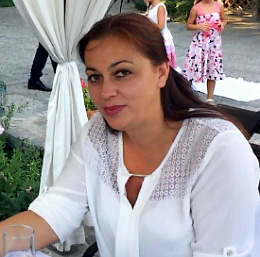
Tsonka Stoyanova Dimitrova graduated from the at Shiroka Lûka Music High School in 1994. She studied at the Academy of Music, Dance and Fine Arts “Prof. Asen Diamandiev” from 1994 to 1998. During those years she worked with different music groups such as Folk Art, Balkanski glasove, and Farms Market. At the same time, she also taught folk singing and vocal chamber music at the Music Academy and was assistant director of the Music Academy’s performing choir. In 2001, Tsonka began working as a soloist in the folk choir of Ensemble Trakia. She later became director of that choir, a position she still holds. She also works with the world-famous group, Mystery of the Bulgarian Voices. She has many years of experience as a soloist on Bulgarian radio and television.
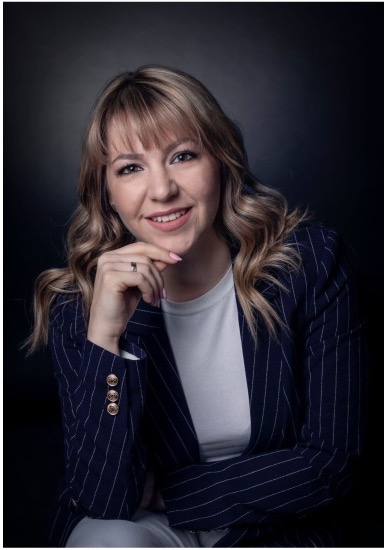
Denitsa Vasileva was born in Plovdiv. She began her singing career at a very young age as a student of the famous Rhodope singer Anka Kushleva. Beginning in her youth, she has won many prizes at folk competitions in Bulgaria and abroad.
In 2005, Denitsa began studying at the Academy of Music, Dance and Fine Arts “Prof. Asen Diamandiev” in Plovdiv, and at the same time she sang in the chorus and was a soloist with Ensemble Trakia in Plovdiv. In 2009, she received her bachelor’s degree with a major in “Pedagogy of music education,” and in 2010 she received her master’s degree from the Academy with “Media music editing” as her specialization.
Since 2009, Denitsa has worked as a folk singing specialist in the State Folk Choir and Academic Folk Ensemble. From 2013 to 2017, she worked as a teacher of folk singing at the National School of Music and Dance ”Dobrin Petkov” in Plovdiv, and was host of the folk show “Pesenta mu e praznika, razduma mu e kavala” on Radio Plovdiv. She has performed as a soloist with different groups in Bulgaria and abroad. In 2022, she attained her doctorate in “Musicology and Musical Art” upon defending her dissertation on “The Bulgarian folk song and its contemporary interpretation.”
Denitsa’s teaching career at the Academy began in 2021 as an assistant in folk singing, and in 2023 she became the chief assistant. She has made recordings, including with the Folk Orchestra of Bulgarian National Radio, and given many concerts with different groups. In 2024, she presented a workshop and solo concert in South Korea at the KOUS Korea Cultural House in Seoul.
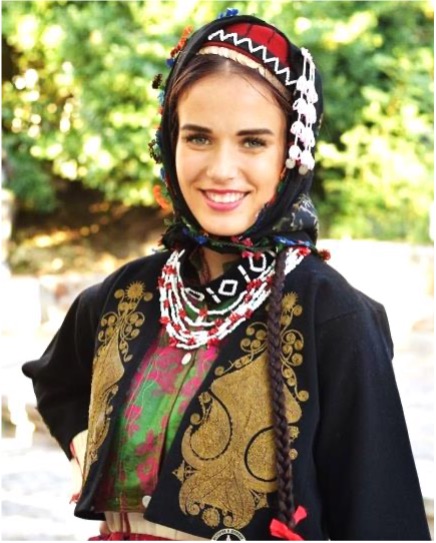
Gabriela Mihailova was born in Ruse in 2002. She graduated from the “Prof. Veselin Stoyanov” high school in Ruse with a major in folk singing. She is currently studying at the Academy of Music, Dance and Fine Arts “Prof. Asen Diamandiev” in Plovdiv with a major in “Directing folk ensembles.”
Gabriela recently became qualified as a teacher of folk singing. For the last 3 years she has had the opportunity to direct the folk choir and folk orchestra of the Music Academy, and as a member of the Academic Folk Choir, she is regularly involved in the choir’s activities – giving concerts and making recordings, taking part in festivals in Bulgaria and abroad, and also in joint projects with the violinist Vasko Vasilev.
Gabriela is a founding member of the vocal trio “Idepeya.” She is secretary of the board of the Bulgarian National Youth Folklore Union and for the last 3 years has taken part in organizing the international competition, “Orfeevi talanti.” She participates in the annual Summer Academy that takes place in the municipality of Malko Tarnovo and surrounding villages, including the main activities of collecting, deciphering and analyzing musical folklore and getting to know the customs of the Strandzha folklore region. Her article, “’Zaspalo e chelebijche’ by Hristo Todorov – from a student’s point of view,” was published in the collection of the “Spring scientific readings” scientific conference.
Dance Teachers & Village Dance Groups
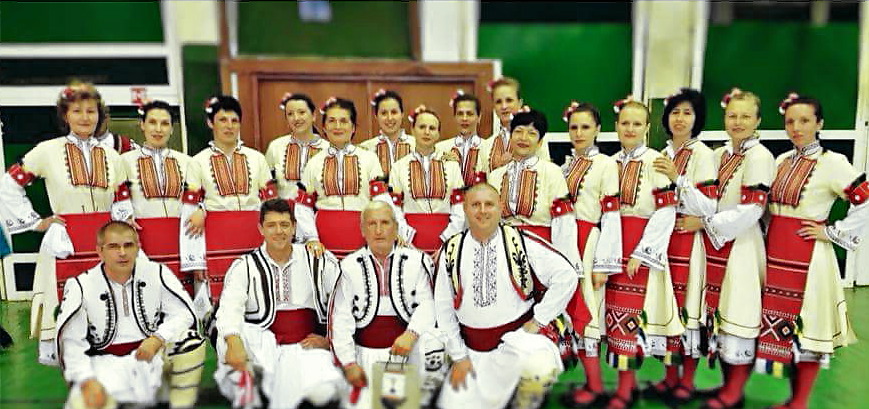
A dance ensemble of women only was founded at the “Prosveta – 1937” Cultural Center in Marikostinovo in 2010; the name of the group was Makedonki and the director was Tanya Terzieva. In 2014, Valeri Dzganev became the director, and with the inclusion of men in the group, the name changed to Pirinska magiya.
The group has taken part in many regional and national festivals and received the following awards:
- Folk festival “Rila ni gleda” (Dupnitsa, 2015) – 1st prize for an authentic horo
- Folk festival “Trakiiska broenitsa” (Pazardzhik, 2015 & 2016) – best authentic presentation
- Folk festival “More ot ritmi” (Balchik, 2016) – 1st prize for authentic folklore
In recent years, the group has participated in the following folk events: International Folk Festival “More ot ritmi” in Balchik (2017); National Folk Festivals “Pirin pee” in Predela, “Folklorna magiya” in Bansko, and the International Folk Festival in Geferudi, Greece (2018); and the Folk Festival “Yuzhen gerdan” in Petrich (2019).
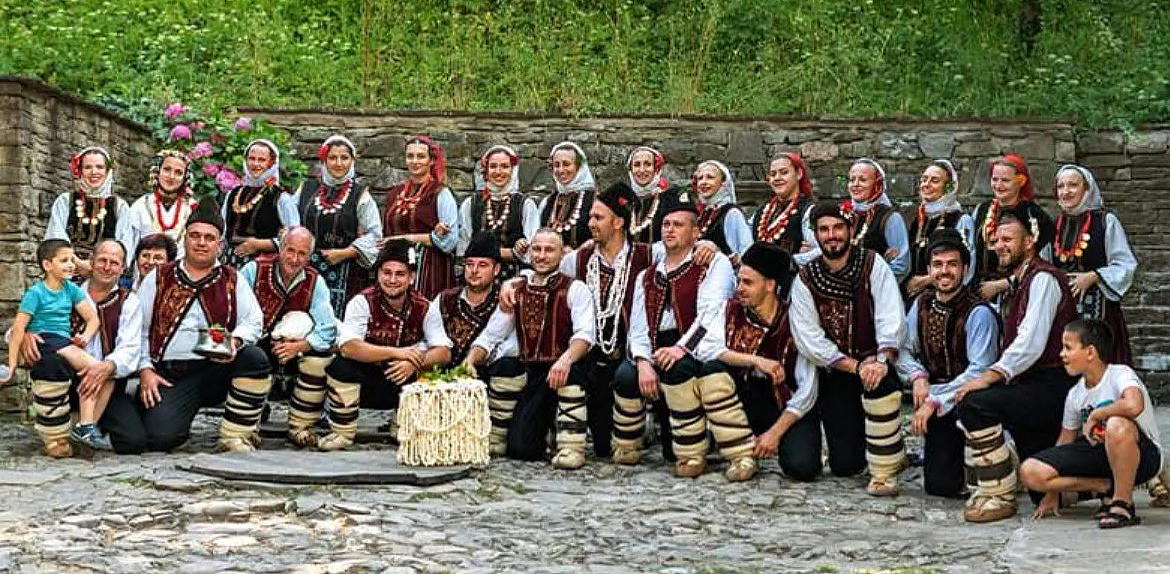
The recently formed “Erkechko nasledstvo” (Erkech heritage) amateur group for authentic folklore consists mainly of young people with Erkech roots – they are descendants of the village of Kozichino in Pomorie municipality, Burgas region, which is better known by its old name – Erkech.
In 2024, the group had their first appearance outside the village, at the open-air Ethnographic Museum “Eter” near Gabrovo, where they performed “Ovchata,” an old horo from Erkech, and “Valyanka,” a folk ritual, for which they were awarded first prize.
In addition to authentic dances and songs that are typical for their area, the group performs these customs: “Lazari,” “Kolada,” “Petlevden,” “New Year’s Day” and “Valyanka.”
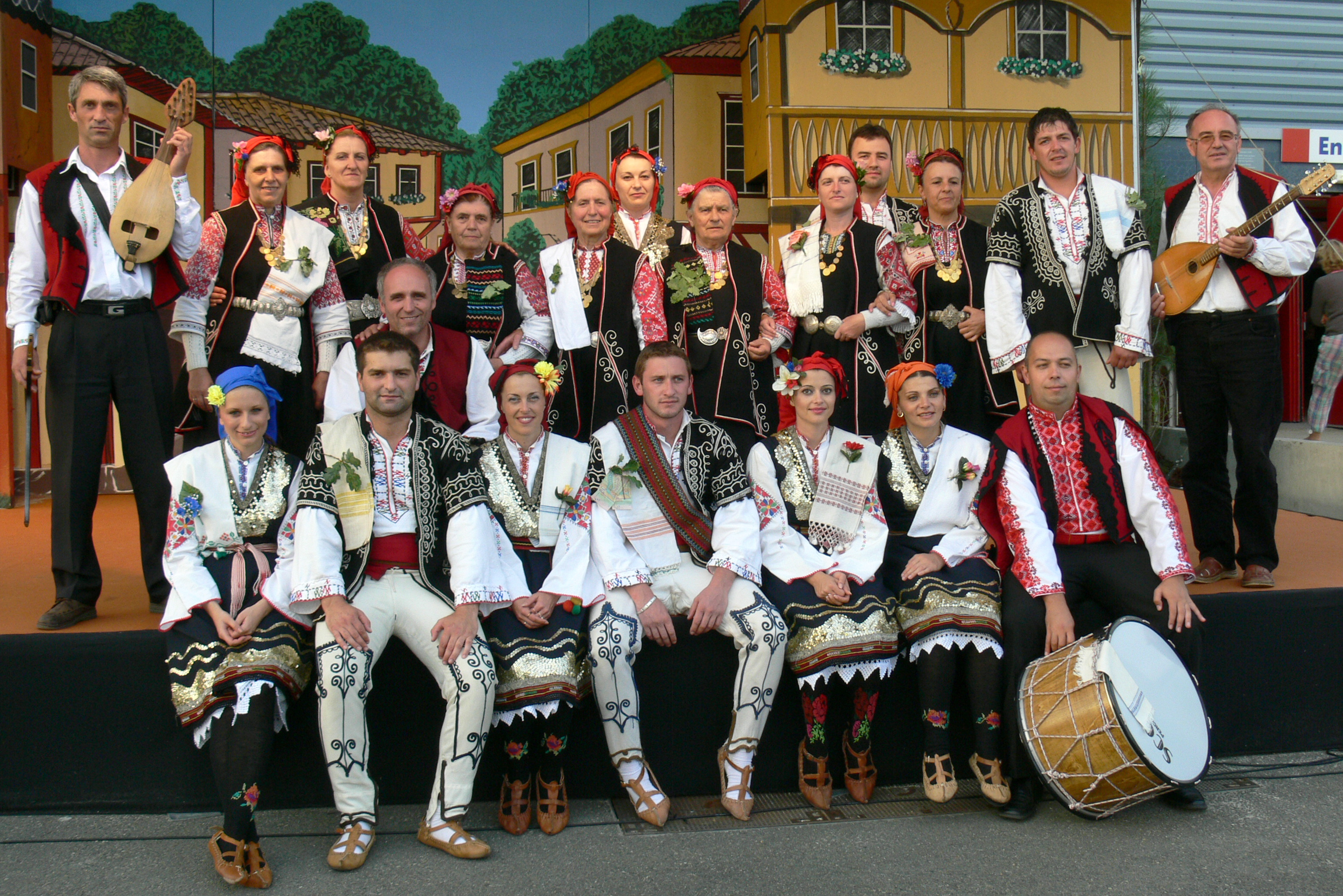
The Bistritsa Folk Ensemble at the “St. Tsar Boris I – 1909” Community Center was founded in 1950 with the goal of seeking out, preserving and promoting the rich folklore of the village of Bistritsa. The core of the ensemble is the Bistrichki Babi (“Bistritsa Grannies”) polyphonic singing group. Prof. Stoyan Dzhudzhev says of their unique singing, “The Bistrita polyphonic contains live remnants from ancient Greek times…” One of his conclusions is that the musical tradition of the village of Bistritsa has those characteristics that are found in the musical life of some tribal cultures. This criterion leads to the conclusion that there are remnants of a very old music layer. Because of their exceptional knowledge, skills and talent, in 1995 the Bistrichki Babi were inscribed on the UNESCO “Representative List of the Intangible Cultural Heritage of Humanity.”
Talented dancers in the folk ensemble perform local Shope horos passed down from generation to generation. The bitov orchestra is the successor of the famous Bistrishka Chetvorka instrumental group and features old tunes and songs inherited from their fathers and grandfathers. The Bistritsa Folk Ensemble is the winner of the Herder Prize for Folk Art and is a laureate of many national and foreign festivals. The group has won gold medals at all the Koprivshtitsa festivals and all the other national festivals in Bulgaria. They have participated in international festivals and concert tours in France, Great Britain, Hungary, Germany, Czech Republic, Slovakia, Slovenia, Greece, Morocco, Italy, USA, Lithuania, Latvia and Taiwan. The group’s artistic director is Dina Koleva.
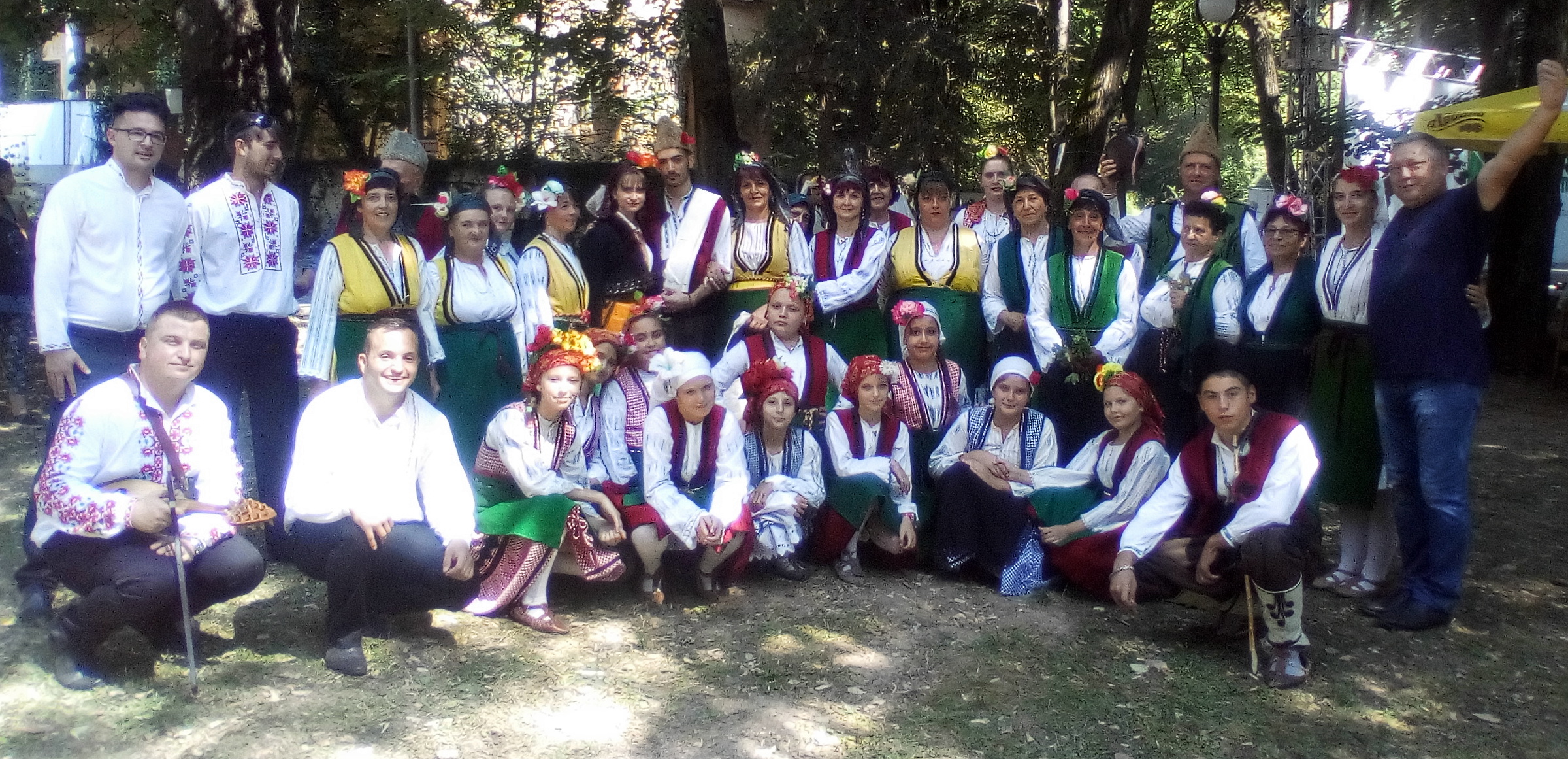
It is an “old truth” that gifted people are born in the village of Bûta; that children in Bûta sing before they talk and dance before they walk. The most famous thing about the village of Bûta is the folklore ensemble Iglika. The Iglika folklore ensemble was founded at the “N. Vaptsarov – 1927” Cultural Center in 1952, initially as a singing group, and subsequently as a folklore ensemble, bringing together the songs, dances and instrumental melodies of the Srednogorie region, and especially of the village of Bûta. There are about 40-50 amateurs in the ensemble, which consists of a female singing group, a children’s singing group, a dance troupe, individual performers and an orchestra of folk instrumentalists.
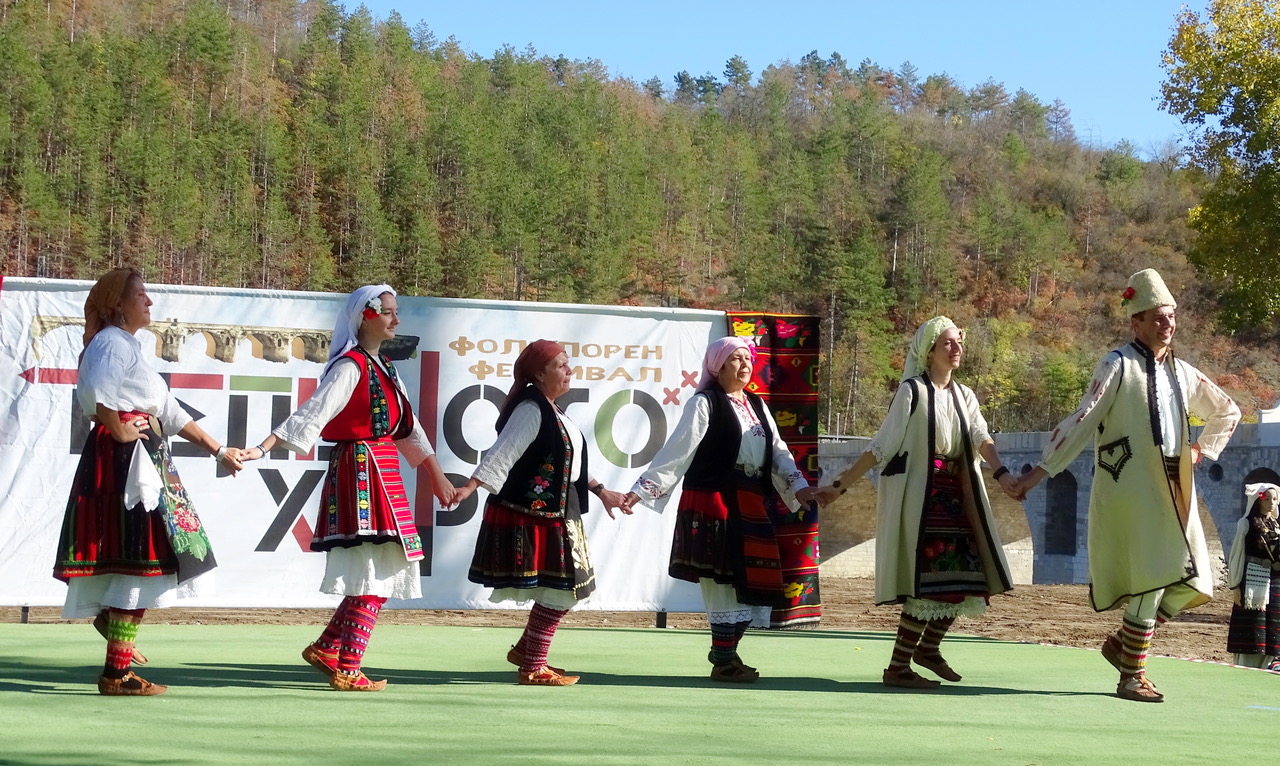
“Igrivite opinki” (“the dancing opinki” [folk shoes]) is an amateur group founded in October 2017 by a group of friends from Lom and Montana, with the aim of learning/studying folk dances. Over the years we have focused on searching for authentic dances, music recordings, rituals and traditions, and – one of our great loves – traditional clothing, from our area.
The leader of the group is Katalina Ivanova, and our friend and teacher is Dyado Lazar Lazarov from the village of Sumer.
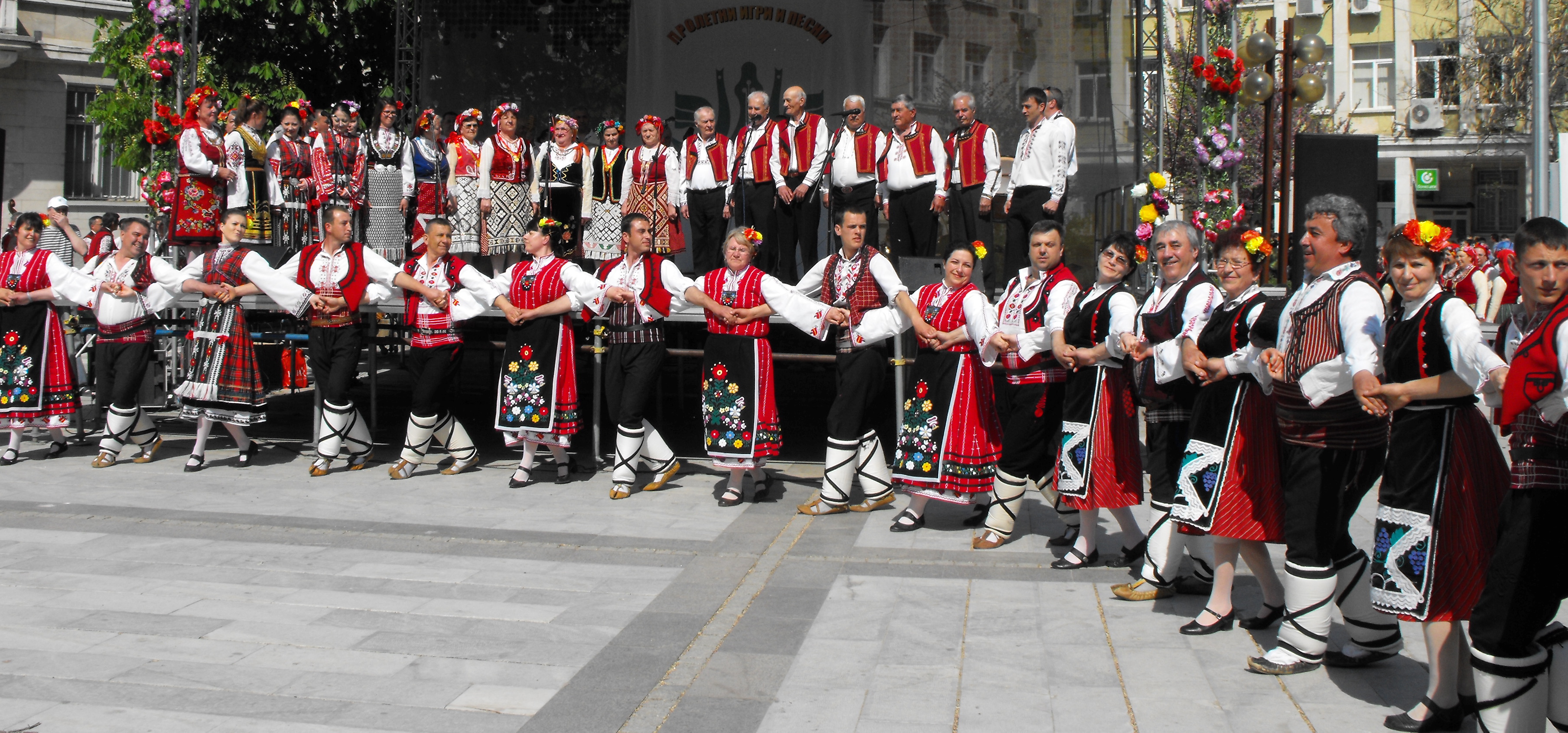
The “Drûstûr 2012” Cultural Center and the Club for Authentic and Arranged Folklore “Dobrudzha” in Silistra were established in 2012. There are over 160 dancers, singers and musicians in the club, whose artistic director and choreographer is Dimitûr Dzhambazov. The club has 5 dance and 3 vocal formations, solo singers and instrumentalists of all ages, and a repertoire from all of the ethnographic regions of Bulgaria. The club members put all their talent, great enthusiasm and love for folk art into the work of the ensemble. The club’s aim is to preserve and present the rich folk song, music and dance of Bulgaria and to make it accessible to the general public, at home and around the world.
The concert programs of the group are organized in such a way that songs, dances, instrumental melodies and ritual presentations blend into each other. One of the aims of the group is to present arranged folklore, while another is to preserve and present the wealth of authentic Bulgarian folklore that has been handed down to them. The Club for Authentic and Arranged Folklore “Dobrudzha” in Silistra is renowned and highly appreciated throughout the country and abroad, and wherever the group performs remains a memorable holiday of the Bulgarian spirit and culture.
Program Coordinators
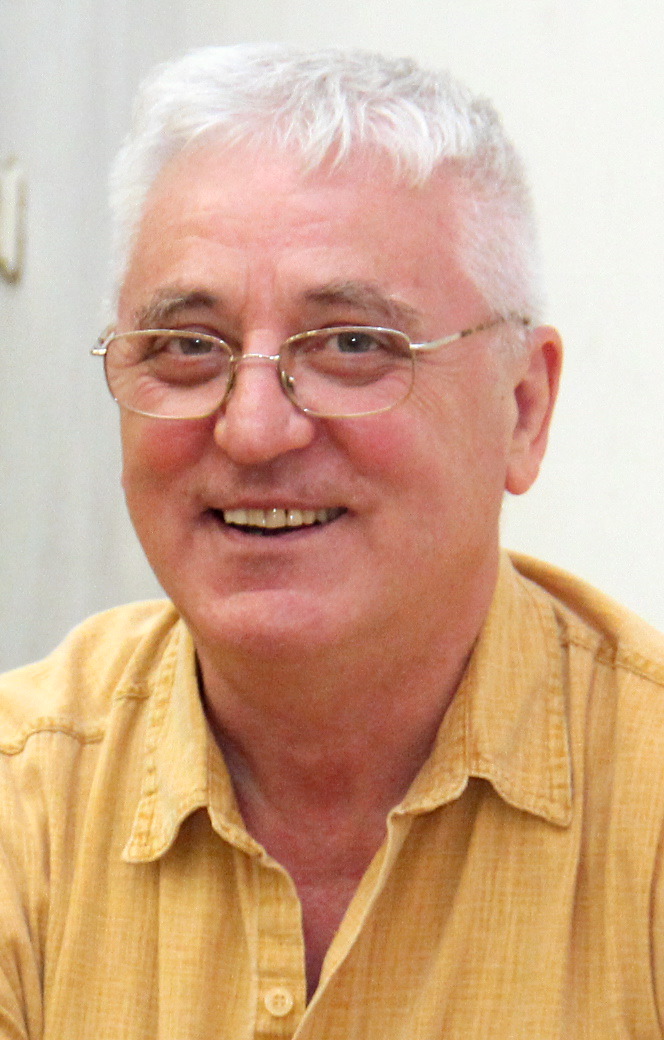
Prof. Dr. Lyuben Dossev was born in Pleven, North Bulgaria, in 1953. Following in the footsteps of his father Tsvetan Dossev, the kaval player for Severnyashki Ensemble, Lyuben started to play the kaval as a small child. As early as the 7th grade, he was recruited by youth folk camps to teach kaval to younger children. After Lyuben graduated from the Pleven Music High School, he moved to Plovdiv to attend the Academy of Music, Dance and Fine Arts. During this time, he was one of the founders of the vocational music high school in the town of Shiroka Lûka in the Rhodope mountains, the first of its kind in Bulgaria. Lyuben received his Bachelor’s degree from the Academy and has been teaching there ever since; he later went on to earn his Doctorate degree, also from the Academy. Lyuben has taught nearly all of the current generation of Bulgaria’s most well-known kaval players and has been a mentor for many young musicians, as well as colleagues at the Academy. In 2004, Lyuben was elected Dean of the Department of Music Folklore, Choreography and Arts, at the Academy. For the past 10 years, he has taught numerous times at folk camps in the U.S. and is proud to be the Program Director for the Bulgarian Folk Music & Dance Seminar again this year.
Late in 2008, Lyuben Dossev became Bulgaria’s first kaval player to achieve full professorship and was elected Vice Rector of the Music Academy. In October 2013, Lyuben became only the second folk musician to be honored with the highest possible academic title “Member of the Bulgarian Academy of Sciences and Arts.” Also in 2013, Lyuben Dossev was a special guest during the Christmas production of the Washington Revels called Echos of Thrace. This one-of-a-kind opportunity he shared with his wife, Tanya Dosseva, his daughter Tzvety Weiner, his son-in-law Bryndyn Weiner, and his in-laws Larry Weiner and Margaret Loomis. Prior to the Washington Revels series in December of 2013, Lyuben Dossev performed for distinguished guests at the Bulgarian Embassy in Washington D.C. with his family.
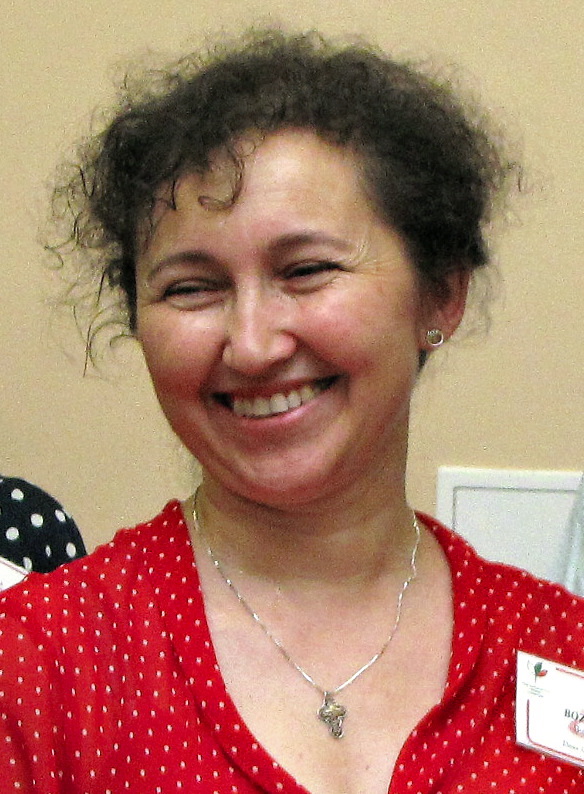
Since October of 2004, Iliana has been the director and choreographer of Representative Folk Ensemble Voivodintsi, which has 150 dancers and singers who range in age from 5 to 80 years old. Throughout the years, Iliana has also worked with many recreational groups and ensembles in the Netherlands, Norway, Japan, Taiwan, Hong Kong, Switzerland, Germany, United Kingdom, Israel, Indonesia, Belgium, Canada and the United States. In the U.S., she is also well known as a dance teacher at dozens of folk dance clubs and camps, including Stockton Folk Dance Camp, EEFC East and West Coast Balkan Music & Dance Workshops, Balkanalia, Old World Music & Dance, Pinewoods, Mainewoods and others. She has lectured at many colleges and universities around the world. Since 2005, Iliana has organized many tours all over Bulgaria for people from around the world. Her goal is to introduce Bulgarian folklore groups – professional, amateur and authentic/traditional – to the international guests. In addition to working as a dance teacher and choreographer, until 2004, Iliana also worked as an architectural draftsperson. For more information, visit Iliana Bozhanova’s web site.
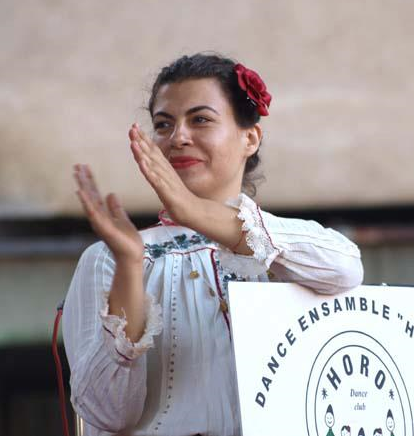
Dilyana Kurdova, PhD, is a researcher of Bulgarian traditional dance folklore and a member of several study groups at the International Council for Traditions of Music and Dance, (ICTMD), an NGO in formal consultative relations with UNESCO. She currently is the secretary of the ICTMD Study Group on Music and Dance of Southeastern Europe with publications in several Bulgarian and international journals (profile with papers in Academia.edu here).
Dilyana is also the founder of the Phoenix Perpeticum Foundation which collects, archives and publishes old video and music material from Bulgaria and the Balkans. In 2023, she published her first book on the topic of symbolism in Bulgarian traditional female costumes, which sold more than 3,000 copies in a year. With more than 290 dance workshops in different countries since 2013, Dilyana is a frequent lecturer in Bulgaria and abroad on the topics of recreational folk groups, intangible cultural heritage and traditional Bulgarian dance folklore, as well as a frequent judge in folklore dance competitions in Bulgaria. Dilyana’s education includes:
– International and EU Studies, Panteion University, Athens, Greece (bachelor’s degree)
– EU Projects in the Public and Private Sector, Hochschule Bremen, Germany (master’s degree)
– Waldorf education teacher (a 3-year course, Waldorfonderwijs)
– Bulgarian Folklore Choreography, Varna Free University, Varna, Bulgaria (master’s degree)
– Ph.D. in Bulgarian Folklore Choreography with a thesis topic “Transformations of traditional dances in recreational dance clubs in Bulgaria and Western Europe” (in Bulgarian), South-West University, Blagoevgrad, Bulgaria.
